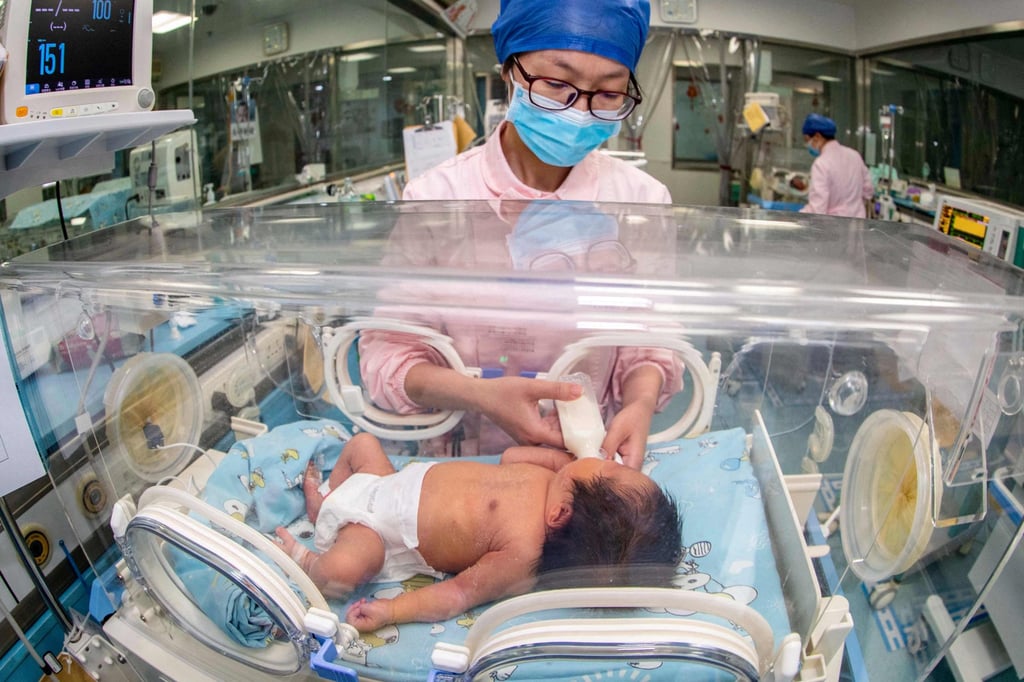Opinion | Will artificial intelligence provide relief or worsen China’s demographic challenges?
- If AI can help to make IVF safer and more reliable, it could result in more births in China, where one in six Chinese couples is estimated to have fertility issues
- Despite the fall in labour population, China can still maintain and improve its production power thanks to the wide adoption of technologies such as AI

China’s demographic crisis is too obvious to ignore. The country’s population has peaked, and the labour population - defined as those aged between 16 and 59 - has shrunk by 76 million in the last 12 years. Many fear that China’s situation could be worse than its neighbour Japan, which is a textbook example of an ageing society, because the mainland is ill-prepared to handle such a plight.
The rapid development of artificial intelligence (AI), however, has offered hope to ease some of the problems caused by the country’s demographic crisis. AI is already being applied in areas such as in vitro fertilisation (IVF). If the technology can help make IVF safer and more reliable, that could result in more births in China, where one in six Chinese couples is estimated to have fertility issues. In Japan, the authorities have started to use AI matchmaking to boost marriage among young people, and this type of service could also be popular in China.
On an optimistic note, it seems the vision Oscar Wilde foresaw in 1891 is within reach. When the machines take over, “all unintellectual labour, all monotonous, dull labour, all labour that deals with dreadful things, and involves unpleasant conditions” will be handled by AI. China may not need as many manual labourers if their jobs can be replaced by smart machines, and the development of generative AI may create smart and affordable household robots to take care of the elderly so the younger generation can use their time for more productive activities.
Despite a declining labour population, China can still maintain and improve its production power thanks to the wide adoption of technologies such as AI.
While AI could offer short-term relief for China’s demographic problems, its proliferation could also add one long-term challenge: AI may make people less willing to have babies. As fertility rates drop in many parts of the world, including in Scandinavian countries and Japan where social-welfare networks are developed, there is an argument that cultural and psychological factors may play a more important role in deciding whether to have children. AI, unfortunately, is not favourable for creating a family-centred culture.
Generative AI is still in its early stage of development, and there are still very different answers about how the technology is going to reshape society. But it is generally agreed that the technology will be a disruptive force for existing social structures. Since AI could be used to replace human labour, the technology is also increasingly capable of replacing normal human interactions. Reduced human-to-human interaction over the long term is bad for people who want social bonds like marriage, relationships and family.

According to official statistics, one in four households in China are “one-person households”, and it is increasingly common for people to live alone owing to technological conveniences. AI is set to speed up that process. Since it would be easier to get comfort and satisfaction from machines, the cost of starting a family or raising a child can increase enormously. In a dystopian future, machines could even play the role of the perfect husband, wife and child, replacing humans.

